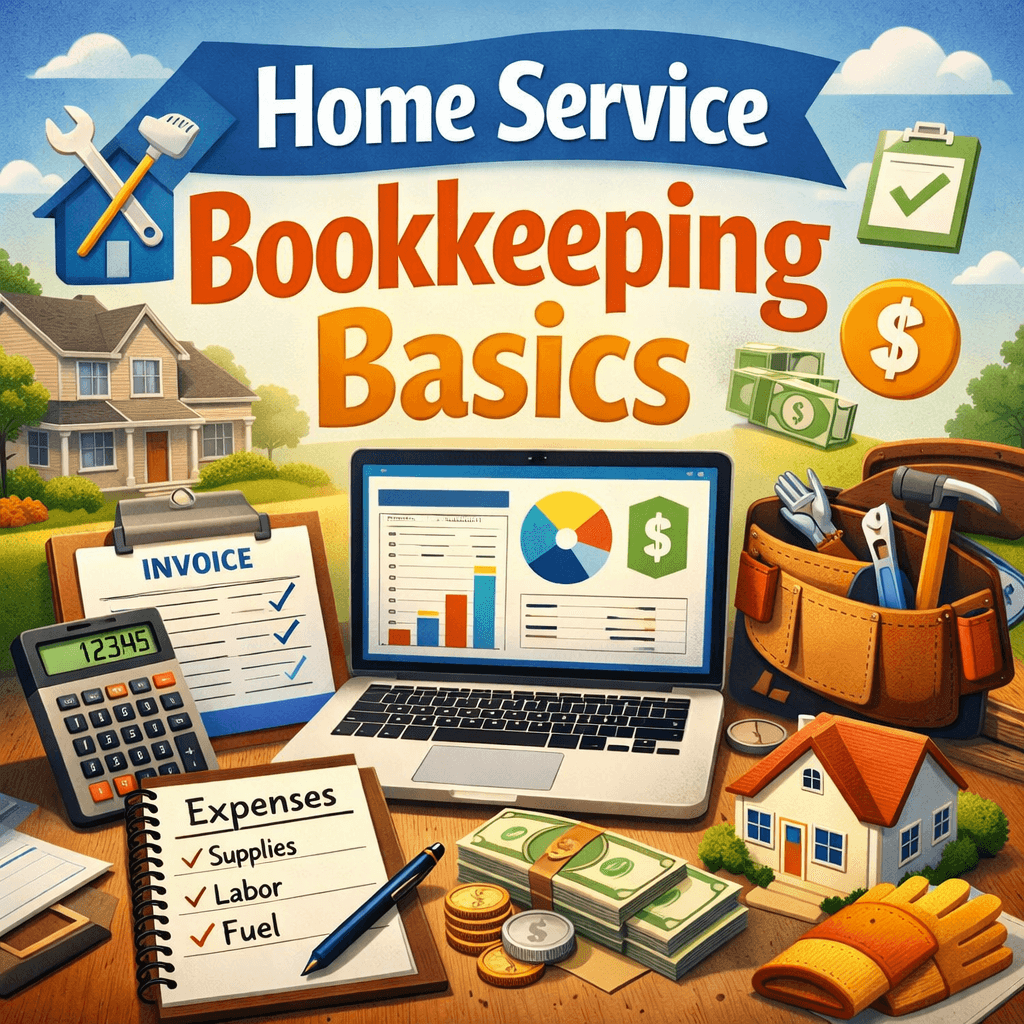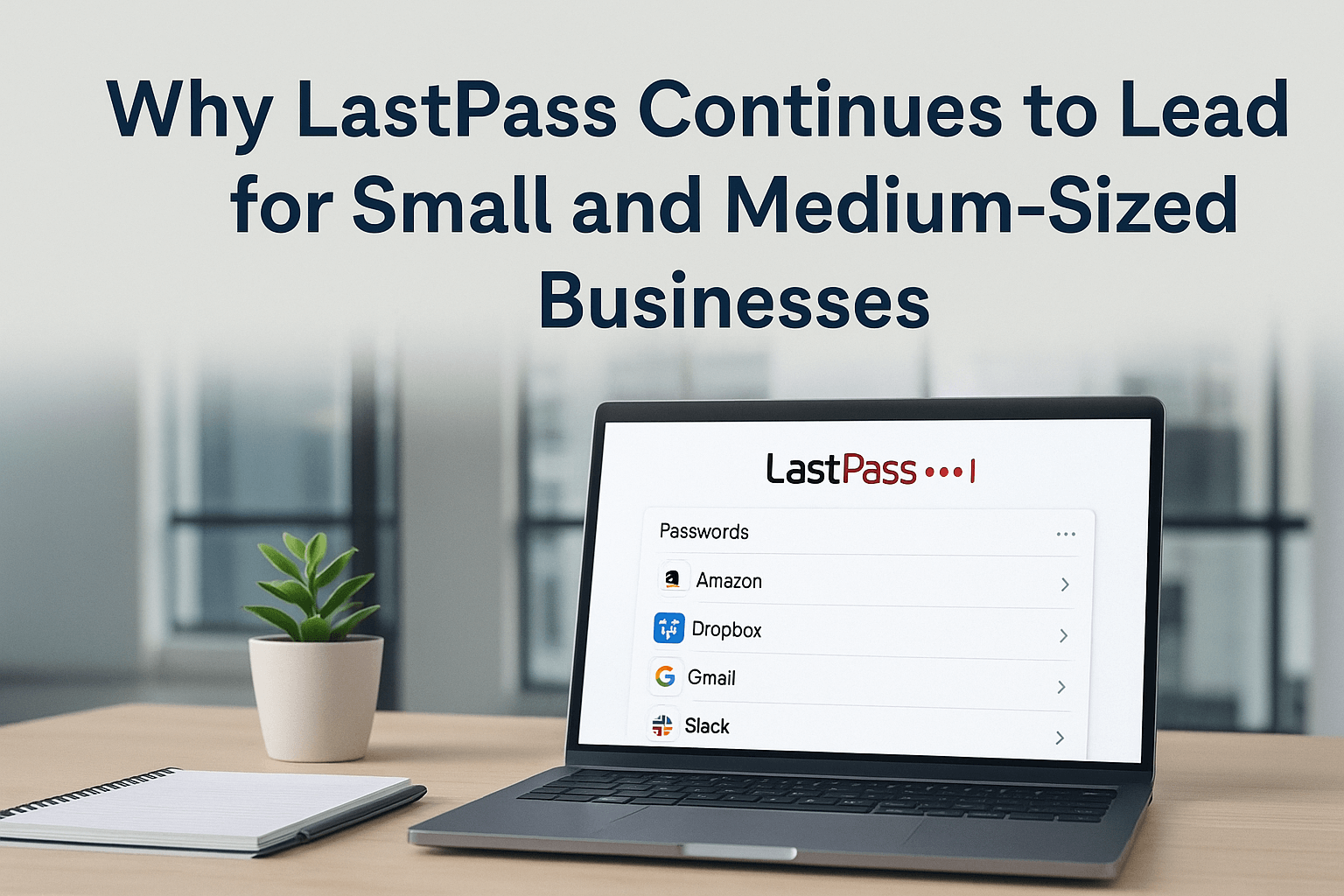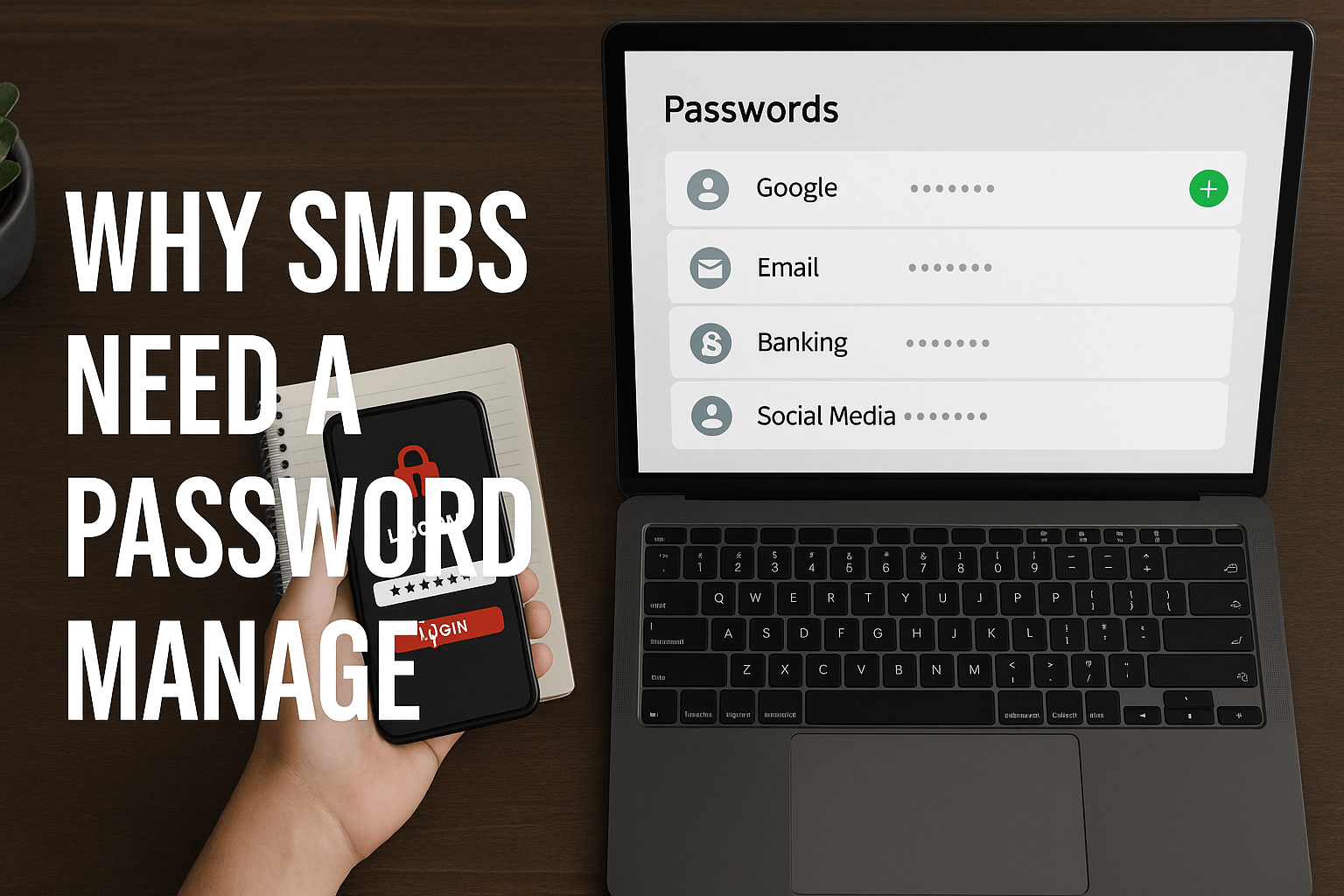Home Service Business Bookkeeping:
Simple, Accurate Finances
Home service business bookkeeping is the systematic tracking of income, expenses, and job costs specific to trades like HVAC, plumbing, landscaping, and electrical work—and it’s the difference between running a profitable business and constantly wondering where your money went.
Here’s what I know after 20 years in this industry: most home service contractors are brilliant at their trade but struggle with the financial side. You can fix a complex HVAC system blindfolded, yet your books are a mystery. That disconnect costs you thousands—maybe tens of thousands—every year. But here’s the good news: bookkeeping isn’t complicated when you have the right system. In fact, 82% of small businesses fail due to cash flow problems, not because they lack customers or skills. The solution? A bookkeeping system built specifically for how your business actually operates, not some generic template that ignores the realities of service work.

What is home service business bookkeeping and how do you get it right?
- Home service business bookkeeping tracks project-based revenue, job costs, seasonal cash flow patterns, and multi-site operations specific to trades like plumbing, HVAC, landscaping, and electrical work.
- It’s built on three pillars: separating business and personal finances completely, implementing job costing for every project, and maintaining real-time cash flow visibility.
- Unlike retail bookkeeping, service business accounting must handle irregular income timing, upfront material costs, and dramatic seasonal swings.
- Success requires choosing software with mobile receipt capture and job costing features, plus weekly transaction reviews to prevent month-end chaos.
- When done right, proper bookkeeping typically uncovers 10-15% in cost savings within the first year through better job pricing and expense control.
Why Home Service Business Bookkeeping Differs from Other Industries
Your business operates nothing like a retail store or office-based company, so why would you use their bookkeeping methods? The home services industry is projected to grow by $6.5 billion between 2023 and 2028—a compound annual growth rate of 40.34%. With homeowners spending 51% more on services than they did in 2019, the stakes for getting your finances right have never been higher.
The project-based revenue challenge
When you complete a bathroom remodel or install a new HVAC system, your revenue structure looks completely different from businesses with predictable monthly income. You might spend $5,000 on materials and labor in week one, work through week three, and not see payment until week eight. This cash flow gap—what I call the “contractor’s curse”—destroys businesses that don’t plan for it.
Traditional bookkeeping assumes steady revenue streams. But your income arrives in chunks: a $15,000 kitchen renovation here, three $500 service calls there. Without proper systems to track these project-based revenues against their specific costs, you’re essentially guessing at profitability. I’ve seen contractors think they’re making 30% margins when they’re actually breaking even after accounting for all project expenses.
Seasonal swings that would terrify other industries
Most businesses dream of 10% monthly revenue variations. In home services? Try 300% swings between peak and slow seasons. HVAC contractors might generate 70% of annual revenue during summer and winter extremes. Landscapers work frantically April through October, then face minimal income for months. Accounting for home service companies must accommodate these massive fluctuations or risk running out of cash during lean periods.
This seasonality affects everything: cash reserves, staffing decisions, equipment purchases, even your tax planning. Generic bookkeeping advice tells you to “smooth out income.” That’s impossible when your phone rings off the hook in July but goes silent in October. Instead, you need systems that help you save aggressively during boom times and strategically manage expenses during slower months.
The multi-site nightmare
Unlike a restaurant or retail store with one location, you’re running a traveling operation. Monday you’re across town fixing a water heater. Tuesday brings three service calls in different zip codes. By Friday, you’ve logged 200 miles and worked at seven locations. Each job has unique costs—materials, travel time, permits, disposal fees—that must be tracked separately.
Without residential contractor bookkeeping job costing, you can’t answer basic questions like: “Did that emergency call last Tuesday actually make money after factoring in overtime and mileage?” or “Which neighborhoods are most profitable when considering drive time?” These insights directly impact which jobs to pursue and which to price higher.
Setting Up Your Home Service Business Bookkeeping System: The Foundation
Starting without a system is like building a house without a foundation—everything eventually collapses. The good news? Setting up properly takes one focused weekend, not months of work.
Complete financial separation (non-negotiable)
This weekend, open a dedicated business checking account and business credit card. Not next month. Not when you “have time.” This weekend. 60% of small business owners feel they lack accounting knowledge, but this one decision instantly simplifies your bookkeeping by 90%.
Why the urgency? Because every day you delay, you’re creating a bigger mess to untangle later. That Home Depot receipt in your personal wallet? Six months from now, you won’t remember if those supplies were for the Johnson job or your own garage. Separate accounts eliminate the guesswork and make tax time infinitely easier.
Design your chart of accounts for service work
Your chart of accounts is your financial GPS—it tells you where every dollar comes from and goes to. But most templates are built for product businesses, not service contractors. Here’s what actually works:
Revenue Categories:
- Service calls and repairs
- Installation and replacement projects
- Maintenance contracts
- Emergency/after-hours work
- Warranty and callback work (yes, track this separately)
Direct Job Costs:
- Materials and supplies by type
- Labor (employee vs. subcontractor)
- Equipment rental
- Permits and inspections
- Disposal fees
- Job-specific insurance
Operating Expenses:
- Vehicle costs (fuel, maintenance, insurance)
- Shop/office expenses
- Marketing and advertising
- Professional licenses and training
- General liability insurance
- Tools and small equipment
Keep it simple—20-30 categories maximum. More than that and you’ll waste hours categorizing instead of analyzing.
Choose software built for movement
Forget desktop-only programs. You need mobile-friendly software that lets you snap receipt photos from your truck, log mileage between jobs, and invoice from the customer’s driveway. While QuickBooks and Xero work, consider specialized options like ServiceTitan or Housecall Pro that include dispatch, scheduling, and payment processing.
The non-negotiable features:
- Mobile app for receipt capture
- Job costing capabilities
- Time tracking by project
- Mileage tracking
- Integration with your bank accounts
- Customer payment processing
Remember: the best software is the one you’ll actually use. If it takes 15 steps to enter an expense, you’ll skip it. Choose simplicity over features you’ll never touch.
How to Track Job Costs and Profitability: The Home Service Business Bookkeeping Essential
Here’s a sobering statistic: labor costs represent 33.8% of total service business expenses, yet most contractors can’t tell you what any specific job’s labor actually cost. Without job costing, you’re running blind—and probably losing money on jobs that seem profitable.
The true cost of not knowing your numbers
Last month, I worked with an electrical contractor who thought his bathroom rewiring jobs were goldmines. After implementing job costing, we discovered he was actually losing $200 per job after factoring in drive time, callbacks, and material waste. He’d completed 40 of these jobs that year—meaning he’d lost $8,000 doing work he thought was profitable.
This happens because surface-level math lies. You invoice $1,500, subtract $600 in obvious materials, and think you made $900. But what about:
- Two hours of unpaid travel time
- The helper who spent three hours organizing materials
- The permit that took an hour to pull
- The callback to fix a minor issue
- Fuel for three trips to the site
- Tool wear and replacement costs
Suddenly that $900 profit becomes a $200 loss.
Implementing real-world job costing
Start by assigning every new job a unique code in your accounting system. When Mrs. Peterson calls about her kitchen outlets, that becomes Job #2024-147. Every expense related to her project—every supply run, every hour worked, every mile driven—gets tagged with that number.
Modern software makes this painless. Your technician starts a timer when leaving for the job, photographs receipts at the supply house, and logs materials used from truck stock. At job completion, run a profitability report. You’ll see:
- Total revenue: $1,500
- Materials: $450
- Labor (including drive time): $520
- Permits and fees: $75
- Vehicle costs: $65
- Actual profit: $390 (26% margin)
That’s reality-based pricing data you can use immediately.
Building your callback reserve
One expense that kills profitability? Callbacks and warranty work. Industry data shows 3-5% of jobs require some follow-up work. Yet most contractors treat callbacks as unexpected surprises instead of planned expenses.
Solution: Add 5% to every job estimate as callback reserve. On a $2,000 job, that’s $100. Price it in from the start. When callbacks don’t happen (most won’t), that money becomes extra profit. When they do occur, you’re prepared instead of watching margins evaporate. This single strategy can add 2-3% to your annual net profit.

Streamlining Invoices and Mastering Accounts Receivable: The Cash Flow Secret
A stunning fact: businesses using electronic invoicing improve cash flow by an average of 64%. Yet most contractors still hand-write invoices or email them days after job completion. This costs you thousands in delayed payments and forgotten billings.
Same-day invoicing changes everything
Here’s my non-negotiable rule: invoice before you leave the driveway. Job done at 3 PM? Invoice sent by 3:15 PM. This simple discipline accelerates payment by 15-20 days on average.
Make payment ridiculously easy:
- Accept credit cards on-site (yes, even with the 2.9% fee)
- Include a “Pay Now” button in emailed invoices
- Offer multiple payment options
- Display service business bookkeeping payment terms clearly
- Text payment links for instant access
One HVAC contractor implemented mobile invoicing and reduced his average collection time from 47 days to 19 days. On $50,000 monthly revenue, that’s $42,000 in additional working capital—money that was always his but previously trapped in slow payments.
The deposit strategy for larger projects
For any job over $2,500, collect 30% upfront. Over $10,000? Make it 50%. This isn’t aggressive—it’s standard practice that protects both parties. Customers who balk at deposits often become problem payers later.
Frame it professionally: “To schedule your project and order materials, we collect a 30% deposit. This ensures we can dedicate our full team to your job without delays.” Most customers appreciate knowing you’re financially stable enough to require proper terms.
Your 15-30-45 day collection system
Despite best efforts, some invoices go unpaid. Here’s the system that works:
- Day 5 after due date: Friendly text with payment link
“Hi [Name], just confirming you received the invoice for your recent service. Here’s a quick link to pay online: [link]”
- Day 15: Personal phone call
“Hi [Name], I’m calling about invoice #1234 from your bathroom repair. Did you have any questions about the work or need different payment arrangements?”
- Day 30: Formal email with late fee notice
Subject: “Past Due Notice – Invoice #1234″
Include original invoice, late fee calculation, and payment options
- Day 45: Final notice before collections
Certified mail stating intent to pursue collections if unpaid within 10 days
This systematic approach reduces receivables aging by 50% because customers realize you’re professionally managing collections, not randomly hoping for payment.
Want clearer job costing and cleaner books? Complete Controller makes it simple.
Managing Cash Flow: The Lifeblood of Your Home Service Business Bookkeeping
Painful truth: 82% of small businesses fail due to cash flow problems—not lack of customers, not bad work, but running out of money. For seasonal service businesses, this risk doubles. Accounting for home service companies cash flow forecasting isn’t optional; it’s survival.
Your 12-month cash flow reality check
Pull your bank statements from the last six months. Calculate your actual cash position on the 15th of each month. See those dramatic swings? That’s your cash flow pattern—and ignoring it won’t make it disappear.
Now project forward 12 months:
- Plot your known seasonal patterns
- Add fixed expenses (rent, insurance, base payroll)
- Include quarterly tax payments (the killer most forget)
- Factor in annual expenses (licenses, vehicle registrations, equipment maintenance)
- Account for typical slow periods
This exercise typically reveals 2-3 danger months where cash runs critically low. Knowing they’re coming lets you prepare: line up a credit line, accelerate collections, or delay equipment purchases.
Building your three-month reserve
Start with this goal: three months of fixed expenses in a separate business savings account. If your monthly overhead is $12,000, aim for $36,000 in reserves. Impossible? Start with one month. Then two.
How to build reserves when money’s tight:
- Automatically transfer 5% of every deposit to savings
- Save all “windfall” money (insurance refunds, early payment discounts, unexpected profits)
- Increase prices 3% but save the increase
- Deposit tax refunds directly to reserves
One plumbing contractor built a $40,000 reserve over 18 months using these strategies. When COVID hit and revenue dropped 60% for two months, he kept all employees and emerged stronger while competitors folded.
Strategic cost management without cutting quality
Review expenses quarterly using this framework:
Revenue-Generating Expenses (protect these):
- Quality materials that prevent callbacks
- Reliable vehicles that don’t break down
- Good technician wages that reduce turnover
- Marketing that brings profitable jobs
Overhead to Optimize (trim carefully):
- Shop rent (can you downsize or sublet space?)
- Software subscriptions (how many do you actually use?)
- Insurance policies (shop annually for better rates)
- Supply costs (negotiate volume discounts)
One electrical contractor discovered he was paying $400 monthly for software subscriptions he never used. Canceling unnecessary tools and negotiating others saved $3,200 annually—enough to fund his entire reserve account in one year.
Bookkeeping for Home Service Business: Monthly and Quarterly Essentials
Bookkeeping isn’t a once-a-year scramble—it’s a rhythm that keeps your business healthy. Think of it like maintaining your work truck: skip the oil changes and you’ll face a blown engine.
Your weekly 20-minute money date
Every Saturday morning (or your preferred time), grab coffee and review the week:
- Categorize all bank and credit card transactions
- Attach digital receipts to expenses
- Review outstanding invoices
- Note any unusual expenses or income
This prevents the month-end marathon where you’re trying to remember what that $247.83 charge was for. It also catches errors immediately—like duplicate charges or missed customer payments. Bookkeeping tips for small home service contractors emphasize this weekly rhythm as the difference between organized and chaotic finances.
Monthly financial health checkup
On the 5th of each month, complete your full reconciliation:
Bank Reconciliation: Match your accounting records to bank statements. Every transaction should align. Discrepancies usually mean:
- Forgotten expenses
- Duplicate entries
- Timing differences on deposits
- Missing invoices
Accounts Receivable Review: List every outstanding invoice. Anything over 30 days gets immediate attention. Calculate your average collection period—if it’s creeping up, your cash flow will suffer next month.
Job Profitability Analysis: Review completed jobs from last month. Which types made money? Which didn’t? One landscaper discovered his “quick” hedge trimming services had 40% margins while his time-intensive lawn installations barely broke even. He immediately adjusted his marketing focus.
Cash Flow Update: Compare actual cash to your projection. Are you ahead or behind? Adjust next month’s plan accordingly. How to set up bookkeeping for a home service business starts with understanding these patterns.
Quarterly strategic reviews
Every three months, zoom out for bigger-picture analysis:
Quarter 1 (January-March): Tax planning and rate adjustments
- Meet with your CPA to estimate taxes
- Adjust pricing for inflation
- Review and renew insurance policies
Quarter 2 (April-June): Mid-year performance check
- Compare YTD performance to last year
- Identify your most and least profitable services
- Plan major equipment purchases for tax benefits
Quarter 3 (July-September): Cash reserve building
- Peak season for many trades—maximize savings
- Negotiate better terms with suppliers based on volume
- Pre-pay expenses to reduce tax burden
Quarter 4 (October-December): Year-end optimization
- Accelerate equipment purchases for tax deductions
- Clean up receivables before year-end
- Plan next year’s growth investments
Common Home Service Business Bookkeeping Mistakes That Kill Profits
After working with hundreds of contractors, I see the same expensive mistakes repeatedly. Fix these and watch your profits soar.
Mistake #1: The “shoebox receipt system”
The scene: tax time arrives and you dump a shoebox of crumpled receipts on your accountant’s desk. Half are faded beyond recognition. Others might be personal. Some are missing entirely. Sound familiar?
This chaos costs you thousands in missed deductions and hours of reconstructed records. The IRS requires bookkeeping for home service businesses recordkeeping requirements including receipts, bank statements, and mileage logs. Without them, legitimate deductions get denied.
The Fix: Digital receipt capture. Your phone becomes your filing cabinet. Snap a photo, assign to the job, done. Apps like Expensify or your accounting software’s mobile app make this automatic. One contractor recovered $12,000 in previously missed deductions his first year using digital receipts.
Mistake #2: Mixing business and personal money
That quick stop for gas where you used your personal card because the business card was in another truck? The business expense paid from your personal checking because it was easier? These “small” mixing mistakes compound into massive headaches.
Problems caused:
- Missed business deductions
- IRS red flags during audits
- Impossible cash flow tracking
- Hours wasted sorting transactions
- Personal liability for business debts
The Fix: Strict separation. One business checking, one business credit card, period. Forgot your business card? Submit an expense report to yourself. Takes two minutes and maintains clean records.
Mistake #3: Underpricing due to incomplete job costing
Most contractors price jobs using “materials times two” or similar rules of thumb. But without actual cost data, you’re guessing—and probably guessing wrong.
Common missed costs:
- Non-billable time (estimates, travel, callbacks)
- Tool wear and replacement
- Vehicle depreciation and maintenance
- Insurance allocated to each job
- Office time for invoicing and scheduling
The Fix: Track everything for 30 days. Every minute, every mile, every penny. Then calculate true job costs including overhead allocation. Most contractors discover they’re underpriced by 15-25% on their “bread and butter” services.
Mistake #4: Waiting too long to invoice and collect
I’ve seen contractors wait weeks—even months—to send invoices. Every day you delay is a day your customer mentally moves your payment down their priority list.
The collection timeline reality:
- Invoice same day: 80% pay within terms
- Invoice within a week: 60% pay within terms
- Invoice after two weeks: 40% pay within terms
- Invoice after a month: Good luck
The Fix: Mobile invoicing before leaving the job site. Make it as automatic as putting tools back in the truck. Can’t do it immediately? Set a phone reminder for that evening. No exceptions.
Mistake #5: Ignoring seasonal patterns
“Business is great in summer, but I can barely pay bills in winter.” If this sounds familiar, you’re suffering from seasonal blindness—acting surprised by patterns that repeat every year.
The Fix: Build your business calendar around known patterns:
- Summer boom? Save 30% of revenue for winter expenses
- Winter surge? Pre-buy materials in fall when cash is strong
- Spring rush? Hire and train in late winter
- Fall slowdown? Schedule equipment maintenance and training
One HVAC contractor started saving 25% of summer revenue and eliminated his annual winter cash crisis. He now uses slow seasons for training, planning, and equipment upgrades instead of panicking about payroll.
Conclusion
Home service business bookkeeping isn’t about becoming an accountant—it’s about taking control of your financial future. You’ve built a successful trade business through skill, reliability, and hard work. But without proper bookkeeping, you’re leaving money on the table and risking everything you’ve built.
The strategies in this guide—from job costing to cash flow management—aren’t theories. They’re proven systems used by thousands of successful contractors who transformed chaotic finances into predictable profits. Whether you’re a solo operator or managing multiple crews, these fundamentals scale with your growth.
Start with one improvement: separate your finances, implement job costing, or streamline invoicing. Build momentum with small wins, then expand your system. Within 90 days, you’ll wonder how you ever operated without proper bookkeeping. Within a year, you’ll have the clarity and confidence to make strategic decisions that actually grow your business instead of just maintaining it.
Ready to take your financial management to the next level? The team at Complete Controller pioneered cloud-based bookkeeping and controller services specifically designed for businesses like yours. We understand the unique challenges of home service business bookkeeping because we’ve helped thousands of contractors build sustainable, profitable operations. Let our expertise become your competitive advantage.

Frequently Asked Questions
What bookkeeping software is best for home service contractors like plumbers and electricians?
While QuickBooks and Xero work well for general bookkeeping, specialized platforms like ServiceTitan, Housecall Pro, or simPRO offer industry-specific features including dispatch integration, job costing, and mobile invoicing. Choose software with strong mobile apps since you’ll update records from the field. The key is selecting something you’ll actually use—the fanciest features mean nothing if the interface is too complicated for daily use.
How much should I charge to cover all my actual costs in home service work?
First, calculate your true hourly cost including labor, overhead, vehicles, insurance, and tools—most contractors discover this is $75-95 per hour, not the $40-50 they assumed. Add material markup of 35-50% to cover purchasing time, warranty risks, and carrying costs. For accurate pricing, track every expense for 30 days, then add 15-20% profit margin. Jobs that seem profitable at “materials times two” pricing often lose money once you factor in all hidden costs.
Should I hire a bookkeeper or do my own books as a small home service business owner?
Start by doing your own books to understand your numbers—spend 3-6 months learning what drives profitability in your business. Once you hit $300K in annual revenue or find yourself spending more than 5 hours weekly on bookkeeping, outsourcing makes sense. A professional bookkeeper costs $300-600 monthly but typically finds enough in tax savings and missed revenue to pay for themselves within 60 days.
What’s the biggest financial mistake home service contractors make with their bookkeeping?
Not tracking job profitability is the silent business killer—you might complete 100 jobs thinking you’re making money while half of them actually lose money after accounting for all costs. The second biggest mistake is poor cash flow planning for seasonal businesses; contractors act surprised when slow seasons arrive despite the pattern repeating annually. Both problems are solved with basic job costing and cash flow forecasting.
How do I handle cash flow when customers pay 30-60 days after service but I have weekly payroll?
Build three layers of cash flow protection: First, collect 30-50% deposits on larger jobs to cover immediate costs. Second, offer 2% early payment discounts to accelerate collections—most customers will pay within 10 days to save money. Third, maintain a credit line equal to one month’s expenses as your emergency buffer but aim to never use it. Combined, these strategies smooth cash flow without relying on expensive financing.
Sources
- SCORE. The #1 Reason Small Businesses Fail – And How to Avoid It. https://www.score.org/resource/blog-post/1-reason-small-businesses-fail-and-how-to-avoid-it
- Superior Virtual Bookkeeping LLC. (2024). The Numbers Don’t Lie: What the Stats Say About Bookkeeping and Business Success. https://www.superiorvirtualbookkeeping.com/post/the-numbers-don-t-lie-what-the-stats-say-about-bookkeeping-and-business-success
- ServiceTitan. (2024). Top 50 Home Services Industry Statistics You Need to Know. https://www.servicetitan.com/blog/home-services-industry-statistics
- Comrade Web. (2024). Home Services Market Growth: Key Stats You Need to Know. https://comradeweb.com/blog/home-services-industry-statistics/
- LimeBox. (2025). Accounts Receivable Optimization: From 40 Days to 7 Days DSO. https://limebox.com/case-study-how-we-reduced-dso-from-40-to-7-days-an-81-improvement/
- Workyard. (2025). 75+ HVAC Facts and Statistics You Need to Know in 2025. https://www.workyard.com/construction-management/hvac-facts-statistics
- Mar-Hy Distributors. (2025). Key Financial Metrics for HVAC Success in 2025. https://www.marhy.com/key-financial-metrics-for-hvac-success-in-2025/
- Deltek. (2024). Construction Job Costing: The Complete Guide For Contractors. https://www.deltek.com/en/construction/accounting/job-costing
- Dialed In Bookkeeping. (2024). Cash Flow Statements for Home Service Businesses. https://www.dialedinbookkeeping.com/blog-posts/cash-flow-statements-for-home-service-businesses
- Complete Controller. Business Bookkeeping Essentials. https://www.completecontroller.com/business-bookkeeping-essentials/
- Complete Controller. Importance of Reconciling Your Accounting Statements Regularly. https://www.completecontroller.com/importance-of-reconciling-your-accounting-statements-regularly/
- Complete Controller. Payment Terms for Small Biz. https://www.completecontroller.com/payment-terms-for-small-biz/
- Wikipedia. Job Costing. https://en.wikipedia.org/wiki/Job_costing
- Internal Revenue Service. Recordkeeping. https://www.irs.gov/businesses/small-businesses-self-employed/recordkeeping
- U.S. Small Business Administration. Manage Your Finances. https://www.sba.gov/business-guide/manage-your-business/manage-your-finances
 About Complete Controller® – America’s Bookkeeping Experts Complete Controller is the Nation’s Leader in virtual bookkeeping, providing service to businesses and households alike. Utilizing Complete Controller’s technology, clients gain access to a cloud platform where their QuickBooks™️ file, critical financial documents, and back-office tools are hosted in an efficient SSO environment. Complete Controller’s team of certified US-based accounting professionals provide bookkeeping, record storage, performance reporting, and controller services including training, cash-flow management, budgeting and forecasting, process and controls advisement, and bill-pay. With flat-rate service plans, Complete Controller is the most cost-effective expert accounting solution for business, family-office, trusts, and households of any size or complexity.
About Complete Controller® – America’s Bookkeeping Experts Complete Controller is the Nation’s Leader in virtual bookkeeping, providing service to businesses and households alike. Utilizing Complete Controller’s technology, clients gain access to a cloud platform where their QuickBooks™️ file, critical financial documents, and back-office tools are hosted in an efficient SSO environment. Complete Controller’s team of certified US-based accounting professionals provide bookkeeping, record storage, performance reporting, and controller services including training, cash-flow management, budgeting and forecasting, process and controls advisement, and bill-pay. With flat-rate service plans, Complete Controller is the most cost-effective expert accounting solution for business, family-office, trusts, and households of any size or complexity.
 Reviewed By:
Reviewed By:














